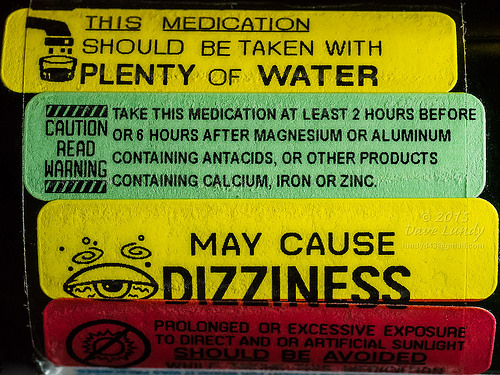Did you know that eating particular foods may change the way your body processes certain medications? This is called a food-drug interaction. Some foods may make a medication less potent, meaning the patient won’t get the full benefit of the medication, while other food and drug combinations may increase a drug’s strength and be harmful to the person taking it.
Grapefruit
Milk & Other Dairy Products
Dairy Products (milk, yogurt, cheese) can make it harder for your body to process certain antibiotics. Minerals like calcium and magnesium are part of the reason, along with the protein casein. If you’re taking antibiotics, ask your doctor or pharmacist about the foods or beverages you should avoid.
Natural Black Licorice
Some people use licorice to help with digestion and some use it to flavor foods. But glycyrrhizin, a chemical in licorice, can weaken the effect of some drugs, including cyclosporine, used to keep people who’ve had transplants from rejecting their new organs. Most licorice sold as candy is artificially-flavored and is of no concern.
Chocolate
Dark chocolate, in particular, can weaken the effects of drugs meant to calm you down or make you sleep (Ambien). It also can boost the power of some stimulant drugs, like methylphenidate (Ritalin).
Iron Supplement
This can lower the effects of Synthroid, a medicine that provides thyroid hormone when your body doesn’t make enough (a condition called hypothyroidism). If you take this medication and a multivitamin, check to see if the vitamin has iron in it. If you need an iron supplement, ask your doctor about taking it and your medication at different times.
Alcohol
This makes certain drugs less effective or even useless, including some blood pressure and heart medicines. It also can make others stronger than they should be or cause dangerous side effects.
Coffee
Coffee can weaken antipsychotic drugs like lithium and clozapine, but boost the effects — and side effects — of others. Those include aspirin, epinephrine (used to treat serious allergic reactions), and albuterol (taken by inhaler for breathing problems such as asthma). It can also make it harder for your body to take in and use iron.
Antihistamines
These help with the sneezing and runny nose caused by allergies, but some of them can make medication for high blood pressure less effective and raise your heart rate. Talk to your doctor about other ways to manage your allergies if you take blood pressure medicine.
Vitamin K (Green Leafy Vegetables)
People taking the drug warfarin — used to treat and prevent blood clots – need to be aware of how much vitamin K they are taking in. It can make the blood thinner less effective and put you at higher risk of a dangerous blood clot. Broccoli, Brussels sprouts, kale, parsley, and spinach are some of the most common foods high in vitamin K. Try to eat the same amount of these foods every day so the level of warfarin in your blood stays the same.
photo credit: lundyd 2015-10-04 (277/365) Warnings! via photopin (license)






